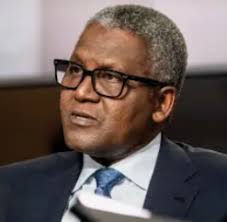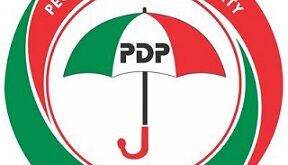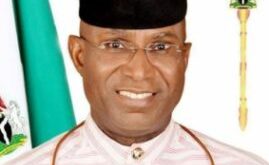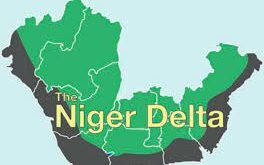By Ehichioya Ezomon
If Africa’s richest man and Chairman of Dangote Group, Aliko Dangote, had thought his efforts and dogged determination to brace the odds and establish the multibillion dollar 650,000bpd-capacity Dangote Petroleum Refinery would bring him praises, and alleviate Nigeria’s decades-long dependence on corrupt and costly fuel importation, that expectation has turned into a nightmare – if not outright mirage.
The coming on stream of the refinery, launched by former President Muhammadu Buhari on Monday, May 22, 2023 – and subsequent roll-out of its products – has met with obstacles deliberately erected by government officials, institutions and major players in the oil sector that are supposed to encourage, support, and enhance the production, accessibility and affordability of the products to the consumers.
From failure or refusal of the Nigerian National Petroleum Company Limited (NNPCL) and International Oil Companies (IOCs) to supply crude to the refinery, to the initial allegation by the Nigeria Midstream and Downstream Petroleum Regulatory Authority (NMDPRA) that the refinery products are inferior and laced with high sulfur.
And from NMDPRA’s continued issuance of licences to marketers to import reported refined but “dirty fuel” when the Dangote Refinery has enough high-quality fuel in stock, and to NNPCL’s assuming the sole off-taker and retention of power to fix prices for the fuel, it’s been a journey from one problem to another wilfully created by interested parties to impede the refinery’s progress.
Nonetheless, Mr Dangote and the refinery seem equal to the “oil cabals” at every turn of their shenanigans, the latest being the alleged plans by an indigenous oil company to import off-spec fuel and blend them with products from the Dangote Refinery, and possibly pass them off as sourced from the refinery, or to scramble with the Dangote products for market share.
Revealing the plot in a statement on November 3, 2024, without mentioning names, the Dangote Refinery said: “An international trading company has recently hired a depot facility next to the Dangote Refinery, with the objective of using it to blend substandard products that will be dumped into the market to compete with Dangote Refinery’s higher quality products.”
The company – unveiling itself as Pinnacle Oil & Gas Limited – located about 500 metres away, had approached the refinery to extend its pipeline to the company’s tank farms “for the purpose of blending our high-quality products with their imported products and selling them to Nigerians.”
Following a report about the antic of the company, Pinnacle Oil, without prompting, let itself out of the bag, clarifying that, as the only depot located close to the refinery, it sought to address the concerns raised by the refinery and reinforce its dedication to maintaining high-quality standards in all its products.
The company said: “Pinnacle Oil & Gas has the only depot facility next to the Dangote Refinery. Without equivocation, we state that Pinnacle Oil & Gas would never engage or attempt to import or distribute any off-spec or substandard product into the Nigerian market. Our company has a reputation for integrity and regulatory compliance, which is extremely important to us.”
Skirting the issue of blending of off-spec products, the Pinnacle Oil, ostensibly attempting to cast the Dangote Refinery as monopolistic in the oil sector, said that, “deregulated commodity markets work best with an open system of multiple sellers and multiple buyers bidding to establish the market price.”
“For Nigeria to have supply options that include local refineries or imports is the mechanism that will establish the lowest sustainable prices,” the company said, adding that, “a free market is also regulated to ensure that all products meet the country’s specifications and that all players behave responsibly.”
But in response to the comment by Mr Robert Dickerman, CEO of Pinnacle Oil & Gas Limited, in defence of his company’s business dealings, the Dangote Refinery, dismissing the notiion of being a monopoly, noted that deregulation isn’t a licence to blend off-spec products, to “jeopardise national interests,” The ConclaveNg reported on November 5.
“The Dangote Petroleum Refinery and Petrochemicals Company has long been an advocate for deregulation and industrialisation in Nigeria, but our support is rooted in a commitment to the sustainable growth of the country’s economy and the protection of its people from any exploitation,” the refinery said, adding that, unlike Dickerman’s view, “deregulation should not be a licence for the importation and distribution of off-spec products or the subversion of national interests.”
The refinery noted that, as an American, Dickerman should be aware of how the United States protects its industries, including opposition to the sale of U.S. Steel to Japan’s Nippon Steel; restriction on the use of Chinese-made cranes in American ports; imposition of a 100% tariff on electric vehicles and 50% duty on medical equipment from China; efforts to boost American production of computer chips and medical supplies; and anti-dumping laws that impose tariffs on Chinese goods considered to be unfairly priced.
The refinery explained that these measures – driven by national security concerns and the need for economic self-sufficiency – are an example of protectionism that prioritises national economic interests over short-term profit, and further demonstrating America’s commitment to safeguarding domestic industries.
“It is therefore perplexing that Dickerman, with all his experience in the U.S. market, would advocate for the importation and blending of petroleum products to Nigeria under the claim of deregulation and a free market,” the refinery said.
“The fact is that he (Dickerman) had deceitfully approached us and pleaded that we extend the pipeline from our refinery to Pinnacle’s tank farms for the purpose of blending our high-quality products with their imported products and selling them to Nigerians.
“We categorically rejected his request to extend our pipeline to their tank farms for such devious purposes because it would be a betrayal of the Nigerian people’s trust. The health and safety of Nigerians cannot – and should not – be compromised for profit.”
The Dangote Refinery iterated its commitment to ensuring that Nigeria becomes self-reliant in petroleum production, saying, “we welcome competition that drives innovation and quality,” adding, however, that, “we will never allow the continued importation and blending of petroleum products, nor the deliberate destruction of our national economy.”
Believing that a strong, self-sufficient energy sector is vital to Nigeria’s economic growth, the Dangote Refinery said it “will continue to advocate for policies and practices that protect our industries and the well-being of all Nigerians,” and eagerly anticipates the coming on stream of the Kaduna, Warri, and Port Harcourt refineries before the end of this year, as promised by the Group Chief Executive Officer (GCEO) of NNPCL, Mele Kyari. “This milestone will not only end all baseless rumours of monopoly (by Dangote Refinery) but also position Nigeria as a refining hub for petroleum products in Africa,” it added.
It’s not the first time that Pinnacle Oil & Gas would be accused of underhand tactic in the importation and/or dealing in unwholesome oils in the Nigerian market. But as reported by The Nation on August 21, the company denied accepting any product that didn’t meet the standard of the NMDPRA and Standard Organisation of Nigeria (SON) into its tanks.
In a rejoinder to Mr Dangote’s accusation of NMDPRA’s non-stop issuing of licences to traders to import high-sulphur content diesel and jet A fuel from Malta – which Dangote specifically described as “dirty” – into the country, Mr Dickerman said, “Pinnacle has never accepted any product into our tanks that does not meet all specifications of Nigerian regulations, and we never will.”
Pinnacle added: “Our regulators oversee quality control of all imported product and has the product inspected by independent, qualified inspectors before issuing a discharge certificate. We can not and will not ever be involved in the distribution of product that does not meet all specifications of Nigerian regulatory agencies.”
Perhaps, by approaching the Dangote Refinery for extension of its pipeline to the company’s tank farms that deal mainly in imported fuel, Pinnacle Oil may’ve presented its tradusers a villainous fait accompli to scapegoat it as an alleged importer of off-spec or substandard products into the Nigerian market.
Remarkably, though, Aliko Dangote – and the Dangote Petroleum Refinery – appears the lone voice crying in the wilderness against the unhealthy practices in the oil sector, necessitating the question: Where’s the government in the ding-dong, back-and-forth that’s grave implications for the health of the nation, its citizens and the environment?
What’s the Tinubu administration – both the executive and legislature – done to ascertain the veracity of these imported substandard products, and the instant revelation to blend same and push them into the market? Is the government handicapped in the circumstances, or it’s abetting and enabling the unpatriotic acts in the industry?
The situation calls for urgent intervention and investigation, as suggested by the Human Rights Writers Association of Nigeria (HURIWA), which, via its coordinator, Comrade Emmanuel Onwubiko, on November 5, noted that Dangote had raised similar concerns about “dirty fuel” dump in Nigeria.
According to HURIWA, substandard fuel, which can cause significant air pollution, increased vehicular emissions, and engine degradation, releases harmful pollutants such as sulfur dioxide and carbon monoxide, contributing to air pollution and potential respiratory diseases,” adding that allowing such products into the market is “tantamount to an assault on public health.”
Recalling that prior allegations from Dangote regarding “dirty fuel” imports were presented to the House of Representatives, “with little to no follow-up action taken, and accountability remains unaddressed,” HURIWA urged the National Assembly to “prioritize this matter and convene a public hearing to thoroughly examine the allegations.”
Besides, HURIWA asked the government to demonstrate its commitment to public safety by initiating a swift, transparent, and unbiased investigation into the quality of fuel entering Nigeria, asserting that, “protecting public health is the highest public good.”
Saying the government must take immediate legal steps to halt the distribution of potentially-harmful products, act decisively, and send a clear message that public safety and product quality are non-negotiable, HURIWA noted that, “this latest controversy presents an opportunity for the government to reaffirm its commitment to public welfare, environmental integrity, and stringent regulatory enforcement.”
HURIWA argued that Nigeria’s credibility on the global stage is at stake if it fails to maintain stringent standards domestically, stressing, “Nigeria cannot demand accountability from the international community on climate issues while neglecting pollution control at home.”
Demanding that the regulatory bodies enforce strict standards and conduct due diligence in fuel quality monitoring, HURIWA called for upgrades to NMDPRA’s testing facilities, to ensure all imported products meet the necessary quality standards before reaching consumers, while any individuals or entities found responsible for compromising fuel quality should be sanctioned to deter future incidents.
The HURIWA recommendations should earn the support of well-meaning Nigerians, while all concerned authorities, including the government and regulatory bodies, should consider them, and do the needful for the sake of the health of the citizens, the protection of the environment, and the maintenance of the good image and reputation of the country in the global community. This isn’t the time for government to dilly-dally, and play the ostrich. It’s time to show leadership, and act quickly, decisively and responsibly!
•Mr Ezomon, journalist and media consultant, writes from Lagos, Nigeria.
 PH Mundial – Port Harcourt Online Newspaper News Across The Region
PH Mundial – Port Harcourt Online Newspaper News Across The Region





